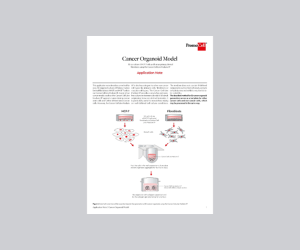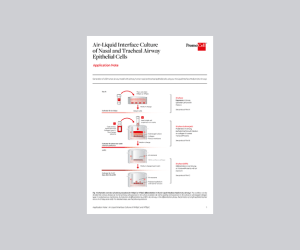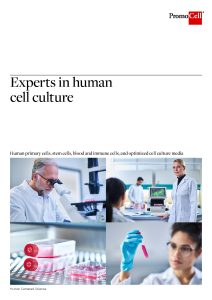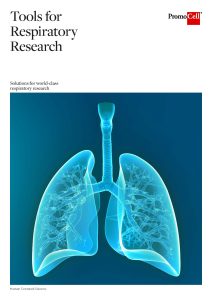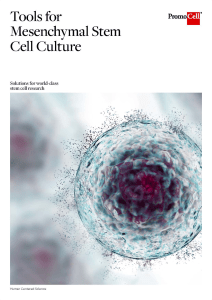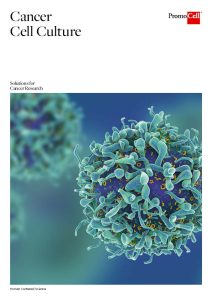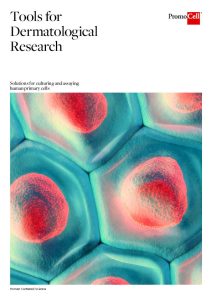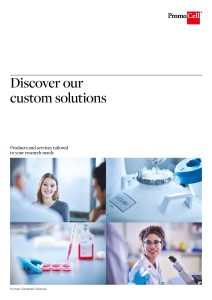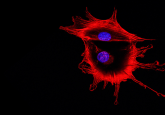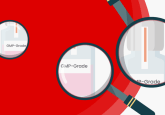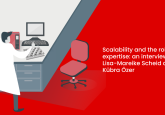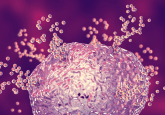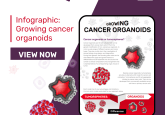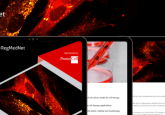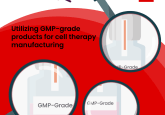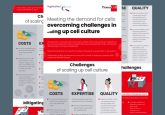PromoCell
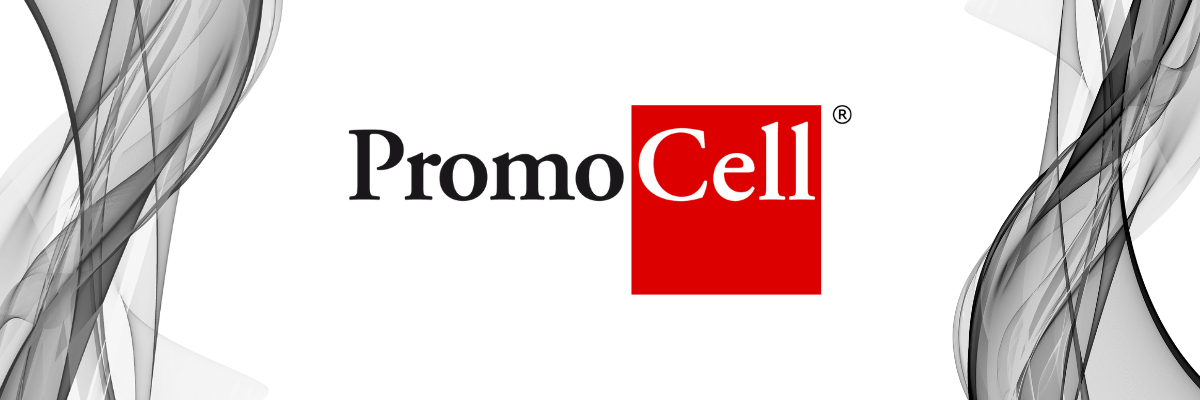
At PromoCell (Heidelberg, Germany), we empower scientists to conduct world-class research by offering an extensive portfolio of human primary cells, stem cells, blood cells, and optimized cell growth and differentiation media. We can fine-tune our flexible manufacturing process to offer customized products that meet your research and manufacturing needs, regardless of the organization’s size and stage of your research. For over 30 years, we have continually supplied scientists with the tools and support they need to conduct groundbreaking research.
All our products comply with European biomedical conventions, ensuring human rights and donor privacy are always protected. Our ISO certifications demonstrate our absolute commitment to quality and our EXCiPACT™ GMP certification enables us to produce our cell culture media and reagents according to GMP standards as a manufacturer of pharmaceutical excipients.
Our expertise in cell isolation, media manufacturing and quality control enables us to offer high-quality products to help you advance cell-based therapies.
Your science is moving the world forward – and we’re here to help.
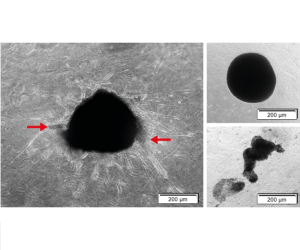 |
3D cancer modelTissue-engineered 3D cancer models have grown in popularity with recent advances in cancer research. 3D models are more biomimetic than 2D cell monolayers cultured on tissue culture plastic. Examples are spheroids, tumorspheres, organoids, PDX and lately, tumoroids, which differ by origin (cell line or patient-derived), size, the complexity of cellular architecture and tumor environment. Discover more about how to develop 3D cancer models and other complex organoids in this resource >>> |
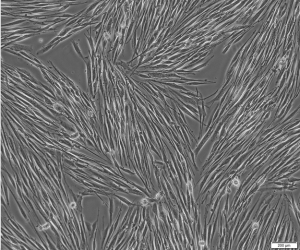 |
Cancer stem cell selectionHow do cancer stem cells develop? What is their role in tumor biology? What are current approaches to target cancer stem cells? And what are innovative solutions for working with them? Find all the answers in this application page >>> |
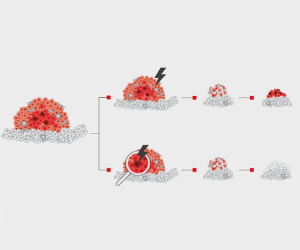 |
CSC therapy – towards new opportunitiesCancer stem cells (CSCs) are a small subset of tumor cells that are able to evade anti-tumor defense mechanisms and suppress anti-tumor immune responses by releasing soluble immunosuppressive factors, such as anti-inflammatory cytokines. CSCs appear to have multiple strategies to escape immunological destruction, including the acquisition of genetic and non-genetic alterations that reduce immune recognition, enhance tolerance against soluble factors and promote the establishment of an immunosuppressive tumor microenvironment. Discover how this toolbox allows for pure CSC isolation and expansion for advanced CSC therapy development >>> |
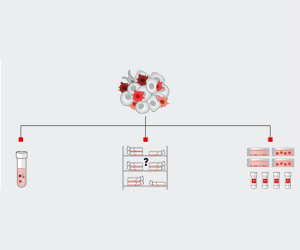 |
From biopsy to assay developmentStruggling to get high-quality biopsies? Isolating patient-derived cancer cells from different types of biopsies is the golden standard for cancer research. However, obtaining regular surgical biopsies from patients is challenging. Discover tips for maximizing biopsy use for assay development in this toolkit >>> |
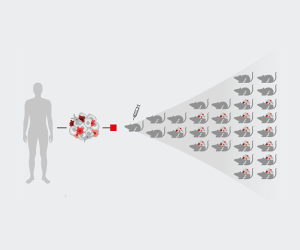 |
Making the best use of your patient-derived xenograft mouseXenograft models are extensively used to provide information about the safety and efficacy in drug development, especially for targeted cancer therapies. Patient-derived xenograft mice are the preferred mouse tumor models, but cell line-derived xenografts and nude rat xenografts are also used. Nevertheless, too many drugs still fail at the clinic that seemed promising in such models. More predictive data are needed to increase optimal translation to the clinic. Explore methods for leveraging your patient-derived xenograft mouse project for better decision-making and translation to the clinic >>> |
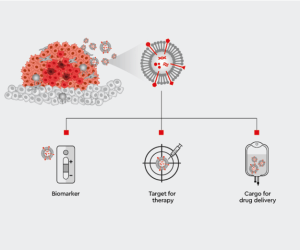 |
Extracellular vesicles in cancer therapyExtracellular vesicles, including exosomes, play a crucial role in tumor biology. Alongside modulating the tumor microenvironment and contributing to the malignant cascade (angiogenesis, the host immune system response and metastasis), extracellular vesicles are involved in chemoresistance. Docetaxel in prostate cancer, for example, may transport mRNA encoding drug-resistant proteins or carry miRNA to recipient cells and trigger the expression of specific target genes. Learn more about the application of extracellular vesicles for cancer therapy >>> |
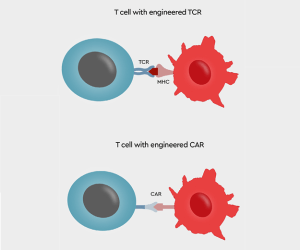 |
Immuno-oncologyImmuno-oncology is a unique combination of oncology and immunology. By activating or amplifying the body’s natural defenses, immuno-oncology aims to boost the immune system to fight cancer better. Targeted antibodies or immunomodulators are well-known immunotherapies; adoptive cell therapy using CAR-T or TCR cells is particularly important, representing a significant breakthrough in cancer therapy with the recent approval of several CAR-T therapies. Discover more about how relevant, reliable and scalable 3D in vitro assays are needed to enhance the development of immuno-oncology therapies >>> |
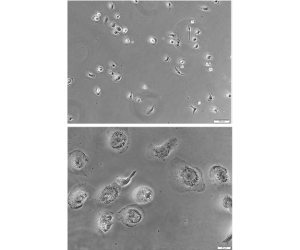 |
Tumor microenvironmentCellular interactions in the tumor microenvironment significantly influence cancer progression and drug response. The efficacy of immunotherapies has triggered increased interest in the tumor immune microenvironment. Therefore, robust experimental systems are needed to enable researchers to model patient-specific interactions between tumor cells and immune cells. Set up a complex organoid model combining cancer and non-cancer cells with the help of this toolbox >>> |
 |
Patient-derived xenograft mouseInnovating mouse research such as patient-derived xenograft mouse models is key to improving cancer therapeutics. In translating scientific findings from mice to men, multiple techniques of collecting biological data are necessary. This article will explain how >>>
|
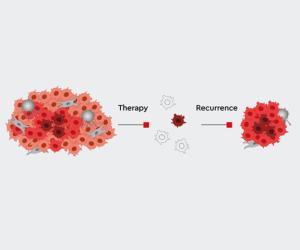 |
Cancer stem cells in tumor biologyHow do cancer stem cells develop? What is their role in tumor biology? What are the current approaches to target cancer stem cells? And what are innovative solutions for working with them? Discover the answers to these questions and more in this blog post >>> |
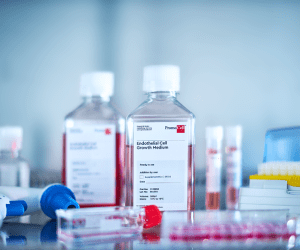 |
Mesenchymal Stem Cells: Challenges and chances in cancer therapyAs the potential for using mesenchymal stem cells in cancer therapy grows, understanding the biology behind them can help inform and inspire innovative cancer therapies. Read this blog post and find out how using high-quality media kits will increase the efficiency and usability of these highly demanded cells >>> |
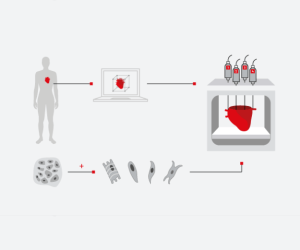 |
Engineering a beating heart: The promise of cardiac spheroids Innovative cardiac models are integral to understanding heart diseases and finding new therapies. Could bioprinting cardiac spheroids using primary human cells be a significant step toward creating a human beating heart in vitro? Find out in this blog post >>> |
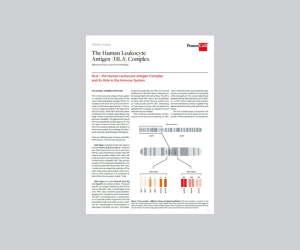 |
The HLA complexDiscover the role of the Human Leukocyte Antigen Complex in the immune system and learn about the relevance of HLA to cancer immunotherapy in this White Paper >>>
|
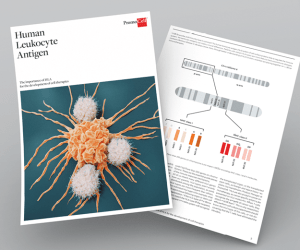 |
Human Leukocyte AntigenDiscover the importance of HLA for the development of cell therapies in this White Paper, including its restrictions for finding and binding, its role in disease, such as cancer, and new therapeutic options for harnessing HLA for cancer immunotherapy. |
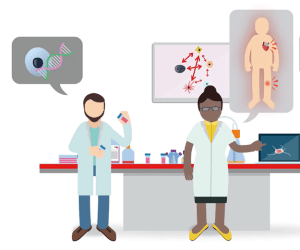 |
MSCs in cell and gene therapyThe immunomodulatory properties of mesenchymal stem cells. Watch the video >>>
|
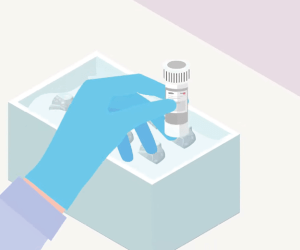 |
How to start your culture: Thawing primary cells Proper cell thawing is essential for the successful initiation of reliable cell cultures. In this video, we will show you how to thaw cells and prepare human primary cells for your research. Watch the video >>> |
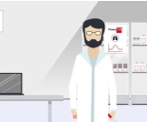 |
How to achieve a reliable Air-Liquid Interface culture Find out how to use our Air-Liquid Interface Culture system for respiratory research in an environment that replicates the in vivo environment. Watch the Video >>> |
Address:
PromoCell GmbH
Sickingenstr. 63/65
D-69126 Heidelberg
Email: [email protected]
Phone number: +49 6221-649 34 0
Or visit us online here
